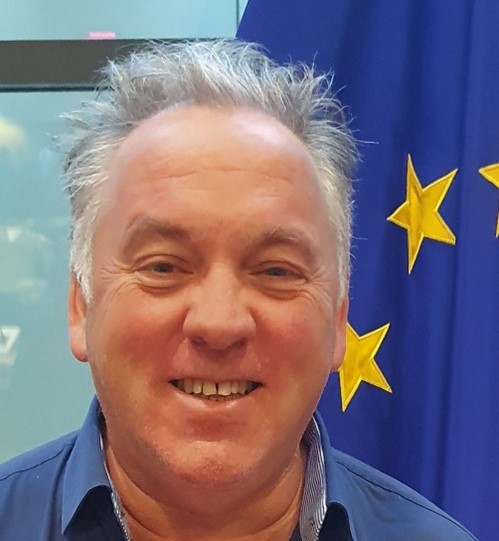Nurses, in different contextual settings, are one of the most trusted health professionals, and as such are in a good position to increase the accessible to vaccines. Nurses play a vital role in achieving maximum uptake of vaccination in collaboration with frontline colleagues, such as doctors and pharmacists. Vaccination is teamwork if you want uptake frontline. An integrated, consistent and multidisciplinary approach across the different healthcare settings is essential to increase people access the healthcare services. But this implies that governments need to support nurses and allied healthcare professionals’ efforts to achieve sufficient vaccine uptake within different contextual settings ranging from acute hospitals, schools, older persons facilities, workplaces and peoples’ homes.
However, general care nurses are the frontline staff largely responsible for delivering safe and effective vaccination programmes to communities across the EU and Europe, yet rarely get formal recognition for this life-saving endeavour. In addition to administering vaccination, nurses have key competencies (Article 31.7 of the Directive 2013/55/EU) and roles relating to educating the public, identifying vulnerable groups, raising awareness and promoting uptake among those who stand to benefit. Nurses are the frontline professionals involved in surveillance, monitoring, planning, delivering and evaluating the success of vaccination programmes; however, unfortunately there is great variety among EU Member States.
Therefore, related to the ongoing COVID-19 pandemic, key challenges relate to the low uptake of COVID-19 vaccines in Bulgaria, Czech Republic, Estonia, Croatia, Latvia, Lithuania, Poland, Romania, Slovenia and Slovakia. However, the main question is why national governments are not supporting nurses to engage in the vaccination strategy to boost uptake. Our colleagues from Bulgaria argue that the EU should urge the Bulgarian government to organise and assure the implementation of the vaccination calendar, as required by WHO. In Bulgaria, the nurses usually perform vaccination in GP’s practices, or in pediatric practices, in elderly care homes, in children’s care home, under doctor’s supervision. In the Czech Republic, there is lot of confusion and rumours, and nurses need objective information, however have barely time to search for it on their own. Therefore, as also argued by Estonian Nurses Union, the European Commission could support a positive media campaign to outline the necessity and usefulness of vaccination. The campaign should be long-term rather than intense and short-term with data being country-based, taking into account the actual current status and information. More evidence-based arguments should and could be prepared so that it is more convenient to use in everyday work of nurses. Our Hungarian colleagues highlight that no adequate communication has been observed as the legal regulations are considered satisfactory. In Latvia, nurse perform vaccination, but physician perform before an inspection. It is therefore argued that the EU must provide frequent and updated effective communication: as it is an important element in achieving objectives. Adequate communication can help to raise awareness, create and sustain demand and encourage acceptance of vaccination services. Therefore, it is key to make the prescribing and administration of vaccines less bureaucratical and as easy as possible. As the uptake in Romania is a huge challenge for the EU, the Romanian Nurses Association argues that the EU must impose to the EU Member States to have a strong and obvious legislation concerning vaccination. Currently, all decisions depend on the medical doctor recommendations. Nurses are currently not amongst the most responsible actors for ensuring that vaccination programmes become successful, unfortunately. So, Romania needs to broaden the legislative scope for nurses to prescribe and administer vaccines. The same is argued by the Slovakian nurses arguing that nurses should become more engaged. Unfortunately, nurses are not the prime health care professional responsible for vaccination in Bulgaria,Czech Republic, Estonia, Croatia, Latvia, Lithuania, Poland, Romania, Slovenia and Slovakia.
Consequently, it is key to use the nursing knowledge and experience! EFN collected best practices of nurses performing vaccinations taking place in Primary Care Clinics/Health Centres of varying kind (27%) and Hospitals (15%): most of the vaccination performed by nurses in Primary Care Clinics/Health Centres of varying kind concerns child vaccination programmes (Cyprus, Denmark, Norway, UK), influenza vaccination campaign (Denmark, Hungary, Norway, France except for the first injection and for a list of people that can benefit from the influenza vaccine injection by a nurse established in the Decree of 19 June 2011), and refugee health services (Cyprus, Demark, Norway). Of key relevance is the role of nurses performing vaccination in kindergartens and schools (13%), with a coverage of different education levels in several countries (Cyprus, Estonia, Hungary, Norway, Portugal, Sweden, Switzerland, UK). Other settings in which nurses perform vaccination are the General/ Family Practices (12%), including adult and paediatrician practice (Bulgaria, Estonia, Germany, Latvia, UK) and Older Persons’ Care facilities (11%) (Bulgaria, Slovenia, Switzerland, UK) that follow in similar percentages. Surprisingly, less than 10% of vaccination takes place where it would actually be most convenient and accessible to the public such as their home (6%) (Switzerland, UK), area of work (6%) (Estonia, Hungary) and their community pharmacy (4%) (Italy, Portugal). Other settings in which nurses are in charge of performing vaccination are travel centres (Cyprus, Denmark, Estonia, Norway); and maternity units (Estonia, UK).
It becomes clear that the COVID-19 pandemic requires the healthcare eco-systems across the EU and Europe to re-think the organisation of vaccination services. And here comes in the Advanced Practice Nursing (APN). Advanced practice sits at the apex of the care continuum and promotes high-quality care. In addition to improving the quality of care, avoiding unnecessary complications and hospitalisations, development of advanced level roles can lead to improving access to care. Advanced practice nursing roles have made an enormous difference on the governance and management of healthcare, and shown to improve efficiency, enhance patient care and improve health outcomes, contributing ultimately to the sustainability of health and care systems. Therefore, the EFN members see the need for development of APNs in the EU and Europe as pressing, given the current and future pandemic context which is stretching health systems and leading to increasing health needs among Europe’s citizens, who demand better and more efficient ways of health care being organised and delivered.
The EFN recommends to the European institutions, Governments and relevant health stakeholders to 1. Invest in capacity building to empower nurses as the frontline professionals educating citizens on and administering vaccinations; 2. Develop a nurse-led positive media campaign to restore citizens’ trust and confidence in vaccines; 3. Support the development of Advanced Practice Nursing (APN) with extended prescribing rights to make vaccination more accessible to citizens; 4. Support the exchange of best practice around communicating the benefits of authorised vaccines among European countries; 5. Provide support for vaccination closer to where citizens work and live their lives; 6. Support nurses’ extending vaccination coverage in schools, workplaces and older persons’ care facilities through appropriate education and training; 7. Provide comprehensive evidence-based information for nurses and encourage vaccination uptake especially when working with vulnerable patient groups; 8. Develop evidence-based decision-making capacity in nurses to support them fulfil their public health education remit for, and beyond, vaccination; and 9. Support and facilitate the exchange of best practices in vaccination policies among European countries.
Written by: Prof. Dr. Paul De Raeve, RN, MSc, MStat, PhD, FAAN – Secretary General European Federation of Nurses Association (EFN)


